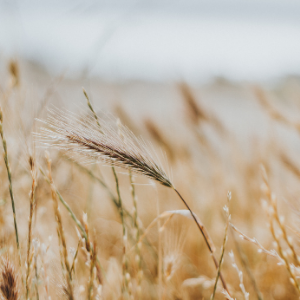I turned to my rabbinic colleagues earlier this year and sighed. We had just completed our 23rd funeral in four weeks due to COVID-19, and it was all starting to feel like it was just too much. “Take care of yourself,” my Senior Rabbi Ed Feinstein said. “We still have a long road ahead.” As I walked to the car, wanting so badly to hug our congregants who had lost their mother, I could sense how very stricken they were. It turns out that even the indomitable N95 mask isn’t strong enough to filter out grief. I looked out over the valley in which I live and thought, “Is this really the new normal?”
It’s been a year since I went into quarantine. On March 6, I returned from a conference and got the message that COVID-19 cases had just been traced back to the event. I locked myself away from my family and friends, not knowing that this was just the beginning. We’ve now celebrated every birthday in our house, every holiday and every anniversary with drive-bys and Zoom dinners. We all are now familiar with the broken-organ sound of a family singing “Happy Birthday” simultaneously together on Zoom. It’s awful.
What worries me most is when I see our children give “air hugs’ to their teachers as if that is normal, or when teenagers feel that Snapchat instead of a sidewalk chat is the normal way of life. This pandemic has forced us to raise a generation that sanitizes affection and human connection. What will be the long term effects of a society that never knows the warmth of a heartbeat against our skin or the strength of a new companion’s handshake?
There is an old parable in my tradition that relates to this question. Once, there was a wise king whose wizard noticed that the harvest that year was cursed. “Anyone who eats this grain will go insane!” said the wizard. “There is only enough grain from this year’s harvest to feed one person next year–what shall we do?”
The king thought for a moment and found a child and said to her, “You are to eat of this grain and no other. Do you understand me?”
The child said, “Yes.”
“Good,” said the king, “for the rest of us will go mad, and we need you, my dear one, to remind us of our mania.”
And so it was, for the next year, the child rode around the kingdom, shouting, “Friends, remember what you are doing isn’t normal, it is the madness that has you!”
We need this child’s wisdom now more than ever. We must all remind each other that the task of this moment is to remember that what we experience in the craziness of COVID-19 is not normal and not right. God, after all, created us to be together (Gen. 2:18). We shall not allow the madness to seize us, and when this cursed harvest ends, we must find ways of coming back together to hold each other’s hands, to feel another’s tear upon our cheek and cast off the darkness that loneliness brings.


